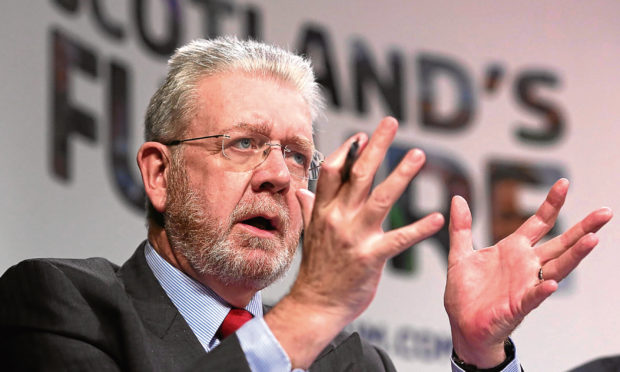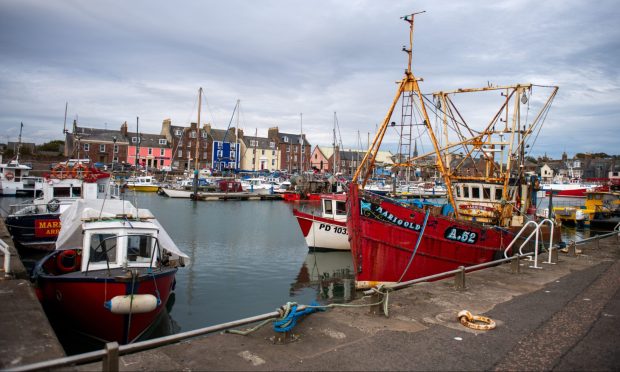If MPs could turn back the clock a few months I wonder how many would now vote for Theresa May’s withdrawal agreement, painstakingly yet thanklessly negotiated with Brussels.
At the time, the former PM won little support for her much-mocked compromise deal, which failed to make it through the Commons three times.
The upshot is that the extended leaving deadline of October 31 is fast approaching with no deal at all in sight and a new prime minister who doesn’t seem to want a resolution to the impasse.
Boris Johnson was elected by Tory Party members to lead them, on a promise of exiting Europe with or without a deal.
Despite visits to Germany and France last week – and a challenge issued by Angela Merkel to find a solution to the Irish backstop dilemma in 30 days – he looks no closer to securing an orderly Brexit.
All those politicians who could have averted the potential crisis of a no deal are now in panic mode as the spectre of trade tariffs, HGV blockages at Channel ports, food and fuel shortages, and a hard border in Ireland looms.
Gordon Brown, fast becoming Britain’s Remainer-in-chief, has called for an independent parliamentary inquiry into the consequences of a no deal.
MPs should seize control in Westminster and force the government to produce an independent report before October 31, he urged on BBC Radio 4’s Today show on Monday.
Brown has talked some sense on Brexit in recent weeks, but not this time. It is surely far too late in the day to be demanding inquiries.
And even if the consequences of a no deal were spelt out in forensic detail, we now have an administration that doesn’t much care.
But as futile gestures go, Brown’s is not top of the list this week. That accolade goes, and not for the first time, to the SNP.
Scotland’s ruling party has a Brexit wheeze of its own, to hold a debate when the Scottish parliament returns from recess next week, to make clear its opposition to a no deal.
The SNP Government will propose a motion saying “the Scottish parliament agrees that the UK should in no circumstances leave the EU on a no-deal basis”.
The nationalists have called on all parties to support the motion and, so far, Scottish Labour, the Greens and the Liberal Democrats have suggested they would back the debate.
This puts pressure on the Scottish Conservatives, whose leader, Ruth Davidson, is an outspoken critic of Brexit but who also needs to work with Johnson.
When there was a real chance to prevent a no-deal withdrawal, the 13 Scottish Tory MPs backed the May deal. The SNP did not.
Now, the Scottish Brexit secretary, Mike Russell, says it is “essential that the Scottish parliament has the opportunity to have its say while there is still time to stop this disaster from happening”.
But, as he well knows, nothing can be achieved by Holyrood voting, unanimously or not, to oppose a no deal.
This is just more grandstanding, and more time wasting, from the minister and yet another attempt by the separatists to exploit Europe for their own political gain.
Previous votes in Edinburgh – including rejecting May’s deal and voting for Brexit to be cancelled in the event of a no deal – were also merely symbolic, designed to create grievances against the UK Government.
The latest will give the SNP a platform to undermine Davidson’s credibility, but its chief purpose is to sow division.
Scottish Greens co-leader, Patrick Harvie, who is pro-independence, said dragging Scotland out of Europe pandered to “narrow-minded British nationalism”.
But is it not narrow-minded Scottish nationalism that is aiding and abetting the UK’s departure in two months without a deal?
If the SNP’s goal was really to leave Europe on favourable terms, given that it couldn’t democratically overturn the outcome of the EU referendum in June 2016, then it would have sought the middle ground.
This is what MPs from the centre right and centre left did when they decided, many with great reservations, to endorse May’s withdrawal agreement, hammered out with EU leaders.
With Britain split almost 50/50 on EU membership, compromise is the only practical alternative to crashing out without a deal, and the only path that is in the country’s best interests.
The Scottish nationalists, however, have no stake in Britain’s best interests, quite the contrary. So, MSPs can talk to themselves next week about Brexit if they want, but let no one be deluded by the Scottish Government’s motivation.
The United Kingdom self-destructing is the SNP’s priority; leaving the European Union (which almost half a million nationalists voted for), or not, with or without a deal, are just more convenient excuses for a fight with London.





